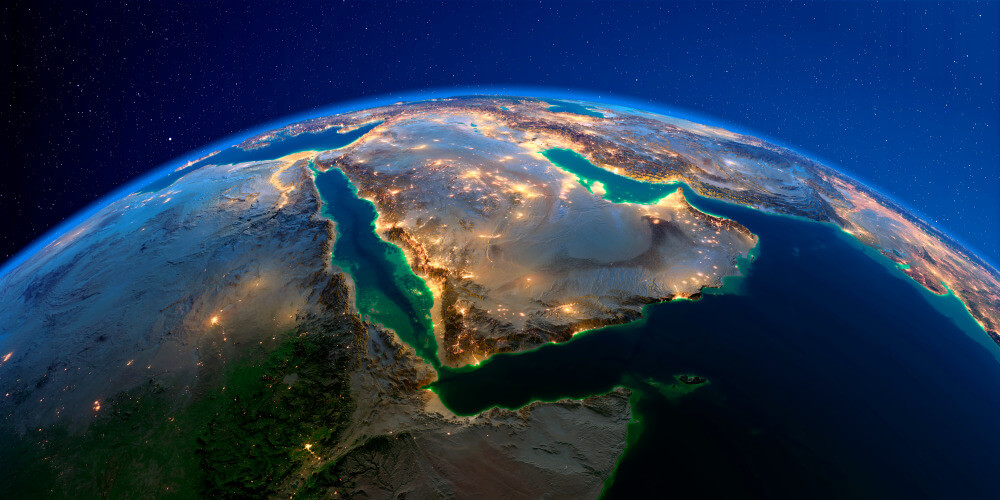Newswrap: Islamic finance
Middle Eastern HNW investors shifting to Islamic finance and sustainable investment; Southeast Asia's Islamic banking sector set to grow 8% by 2026; Tanzania’s takaful sector; Global Finance announces World’s Best Islamic Banks 2022.
Middle Eastern high net worth investors shifting to Islamic finance and sustainable investment
A survey by Lombard Odier, a leading global wealth and asset manager, of 300 high net worth (HNW) investors in the Middle East showed that 85% intend to increase their exposure to environmental, social and governance (ESG) or sustainable investments in the future, while 81% already take sustainability and ESG into account when making investment decisions. Some 72% of investors in the region believe that they can generate improved returns through ESG investments. Currently, sustainable investments account for 33% of investment portfolios, which could rise to 52% in the next five years.
The survey showed that there was strong momentum for Sharia-compliant finance strategies, with sukuks and Islamic loans the two most favoured asset classes in the region, with 39% and 38% interested in holding these assets respectively. Some 67% of investors said that observing Islamic investment principles in their investments is important to them, while only 4% of investors said that they are not interested in Islamic investments.
The survey revealed that Sharia investing is also important to younger investors, with 54% of 18-40 year-olds investing accordingly for some of their assets. This is reinforced by the larger Sharia-compliant asset allocation among the younger generation, who allocate on average 52% to Sharia investments vs 48% for those aged 40 and upwards. This is expected to increase to 60% in the next five years for younger investors, compared to 56% for older investors.
The survey included 300 HNW investors and business owners from the UAE, Saudi Arabia, Kuwait, Oman, Qatar, Bahrain, Egypt and Lebanon, and respondents included both younger investors (aged 18-40) and older generation investors (aged 40 and upwards).
Southeast Asia's Islamic banking sector set to grow 8% over three years
Southeast Asia's $290 billion Islamic banking market is set to grow by 8% CAGR over the next three years, led by Malaysia and Indonesia, according to S&P Global Ratings report,"Growing Belief In Southeast Asia's US$290 Billion Islamic Banking Market," reported Zawya.
The region is the world's third largest Islamic banking market, at 17% of the $1.7 trillion in global Islamic banking assets. "In the major markets of Malaysia and Indonesia, we believe Islamic banks will grow faster than conventional banks, riding on the robust demand," said S&P Global Ratings credit analyst Nikita Anand.
The report estimates that 45% of overall commercial bank loans in Malaysia would come from the Islamic banking sector by 2026, while in Indonesia, Islamic institutions could account for 10% of the overall market by the same year.
In Brunei, Islamic institutions account for halal of the financial sector’s assets, while in the Phillipiness the nascent sector holds possibilities following moves by the local regulator to bolster Islamic finance.
Tanzania’s takaful sector
New guidelines for the takaful segment went into effect this month, which has been issued in April by the Tanzania Insurance Regulatory Authority (TIRA), reported Zawya. Muslims account for 34.5% of the Southern African country’s population, with the issuing of the Takaful Guidelines intended to bolster the Islamic finance and insurance sectors as well as encourage Tanzanians to get insurance. TIRA also introduced guidelines regarding the insurance sales force and the digitalization of the industry.
Global Finance announces World’s Best Islamic Banks 2022
Global Finance magazine released its award winners for 2022, noting that net profit for Islamic banks increase by more than 50% in 2021, with Gulf Cooperation Council (GCC) banks reporting particularly strong results, while there was strong investment in digital and technological investments.
Kuwait Finance House (KFH) as the world’s Best Islamic Financial Institution, with Qatar Islamic Bank (QIB) named the Best Islamic Corporate Bank. Saudi Arabia’s Al Rajhi Bank was named the Best Islamic Retail Bank, while QIB bagged Best Islamic Bank for Corporate Social Responsibility (CSR). Dubai Islamic Bank was named Best Islamic Investment Bank, and Qatar’s Dukhan Bank (a merger of Barwa Bank and the International Bank of Qatar) won Best Islamic Private Bank. Standard Chartered Saadiq was named Best Sukuk Bank, being ranked second in the 2021 international sukuk league tables, with 12% market share. The bank also won Best Islamic Investment Bank, while Saudi Arabia’s Sidra Capital won Best Islamic Fund Manager. The rankings can be found here.
